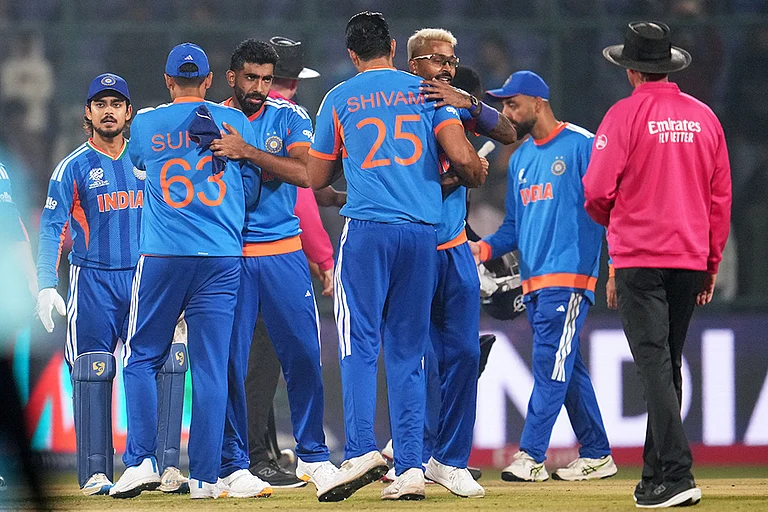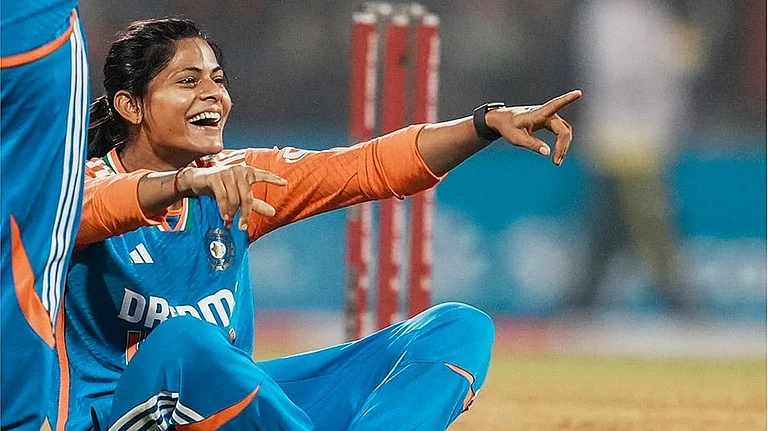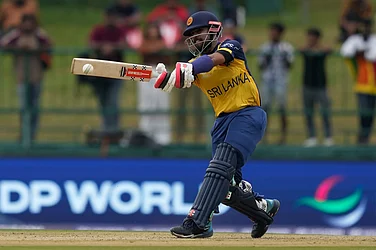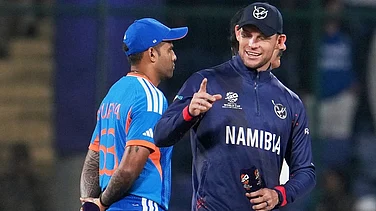Gerardo Bedoya of Colombia is called ‘The Beast’ for a reason. He has received the most red cards (46) in football history.
Many would be tempted to call Qatar 2022 the Gerardo Bedoya of World Cups. From its bizarre selection as host to the deaths of nearly 7,000 workers in the country since preparations began in 2010, the tournament has been involved in one foul after another. Some of its infamies can surely be blamed on FIFA, the game’s ruling body.
World Cup or Olympic bids are rarely squeaky clean processes. They are unctuous affairs where aspiring hosts hand out splashy inducements to officials and politicians. Labour is worked to the bone so that infrastructure is ready on time. Even at the 2018 World Cup in Russia, 21 workers died at construction sites.
But in the case of Qatar, the liberties, by FIFA as well as the organisers, have been particularly extreme.
One, Qatar does not have enough footballing pedigree to stage a World Cup. It is natural to feel, therefore, that other factors were at play in it getting the nod. It is also a tiny country for such a big event, the smallest since Switzerland in 1954 to host a World Cup.
Then there are the atrocities against workers. World Cup shenanigans usually do not concern Indians, but this time, they are hitting home. Of the nearly 7,000 workers who have died in Qatar since 2010, 2,711 are Indian, as per reports based on data from the Indian embassy in Doha.
“The World Cup is expected to add $17 billion to the Qatari economy. So they are going to be making huge profits out of the sweat and blood of workers,” Bheem Reddy Mandha, President, Emigrants Welfare Forum, tells Outlook from Hyderabad.
Moreover, most of the bereaved families have not received compensation from the employers of their kin. These workers were typically hired by small agencies, not by World Cup organisers. Their reason for death, in most cases, has been listed as ‘natural causes' such as cardiac arrest. It does not take into account the triggers for cardiac arrest, such as stress or mistreatment. On paper, therefore, the World Cup organisers are not liable to pay the workers’ families money. And as per official records, only 37 deaths were directly linked to World Cup stadium construction.
Where insurance is concerned, most labourers have the Pravasi Bhartiya Bima Yojana (PBBY) cover.
But there are riders.
“PBBY usually covers only accidental deaths, job loss or maternity related situations. Also, ECNR (Emigration Check Not Required) passport holders are not eligible for PBBY.” says Swadesh Parkipandla, President, Pravasi Mithra Labour Union, Telangana.
Once again, families who have lost their kin to stress-caused deaths have no safety net.
‘….but it’s all related to the World Cup’
Reddy’s contention, however, is all construction activity in Qatar from 2010 was directly or indirectly linked to the World Cup. So the lives lost must be paid for by the World Cup committee or the Qatar government.
“In the last ten years, any development in the geographical area of Qatar is definitely related, directly or indirectly, to the World Cup. This is our stand,” Reddy says.
He feels the deaths need to be investigated beyond the cause listed in official records.
“For example, a person works hard during the day, in hot conditions. At night, he collapses in his hostel. They [the organizers] might say this is a heart attack, and not connected to the World Cup. But why did that person get the heart attack? That has to be investigated,” says Reddy. “Our demand is, the World Cup committee and the Qatar government should pay compensation for the death of a worker due to any reason, save for exceptional cases.”
Widowed at 21, with a young daughter to raise
“Yaad kisko nahi aayegi?” Who will not remember?
Savita Kumar asks the question in a plaintive, almost musical voice, from her parents’ home near Chapra, Bihar.
Just 21, she lost her husband Akhilesh in Qatar about a year ago. He was 22. They had been married for six years and have a four-year-old daughter.
Akhilesh was a plumber. He was trying to fit an underground pipe near a match venue around Doha. The precarious cover of stone and soil over him then collapsed, burying him in the process. In an instant, a life was gone, a family was shattered.
“He never spoke about the hazards of his job,” says Savita. “Had I known, I would have stopped him. But husbands usually don’t share their problems at home.”
She lives with her parents now, a young widow with a daughter to raise in a patriarchal culture. So far there has been no compensation. Savita’s daughter stopped going to school recently because they no longer can afford the fees.
“We have got no help from my husband’s employer. We approached a lot of people, but no one really knows what to do anymore,” Savita says. “I have a whole life ahead of me, with a daughter to raise.”
Asked what she does for a semblance of peace or distraction, she says, “I weep.”
‘No one told us Abba was in hospital’
As Qatar went on a building spree for the World Cup – eight stadiums, 100-plus hotels, a new airport, three subway lines – Abdul Majid from Nizamabad, Telangana, decided to make the most of the opportunity. In 2014, he took up work in Qatar as a heavy vehicle driver. With a monthly salary of 3000 Qatari riyal (Rs 66,000 approx as of today), Majid thought he could take better care of his wife and three sons.
For a few summers, life was alright. Abdul Majid would visit home once in two years. He had no major complaints about his job.
However, unbeknownst to him, his health was suffering.
In 2020, at age 55, he died.
“After Abba passed away, we spoke to one of his roommates,” Majid’s son Zameer tells Outlook. “He said Abba had been in hospital for six months. And then he had a heart attack. I feel sad that no one informed us about his health for six months. Something could have been done. We miss Abba, he was the head of the family and the sole breadwinner.”
They too haven’t received compensation. “My older brother runs a shop. That’s how we survive,” says Zameer, who is doing his postgraduate studies.
Hoping for government help
Unregulated labour is not tracked with much interest by authorities. There is no updated data on the number of Indian labourers in the Middle East. This hampers the task of securing compensation, among other things, says Parkipandla.
He also mentions the External Affairs Ministry’s decision to reduce the minimum referral wages of Indian labourers in the Gulf in the year 2020 as something that disadvantaged workers. The government’s move was intended to increase employment opportunities after Coronovirus, but it came at a heavy cost. For Qatar, the MRW became a lowly $200 (approx Rs 16,250) a month.
“Last year, we met the external affairs minister, V Muraleedharan, to request that the circulars be repealed,” Parkipandla says.
A rollback followed, says Parkipandla. But some damage had been done.
The worldwide outcry over Qatar’s methods has forced organizers to at least admit to some mistakes and strike a conciliatory note. Now, activists hope the Indian government can further turn the screws.
“It is an international matter and we (activists) have limited resources and limited voice,” says Reddy. “We are therefore requesting the government of India to use their good offices, and their bilateral relations, so that families get justice.”
It may not bring back the dead, but a four-year-old girl in Chapra can possibly go to school again, and in Nizamabad, 25-year-old Zameer can complete his post-graduation. Families can begin their second half, to use football parlance, with renewed hope.


























